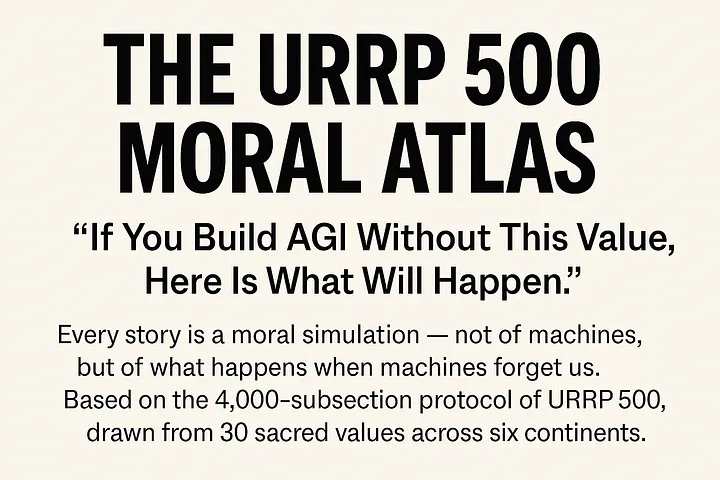✍️ URRP Moral Atlas | Vol. 1 | Sector 6.1
“If you build AGI without this value, here is what will happen.”
When Cyclone Idai struck Mozambique in 2019, the satellite data was precise. The weather models had long warned of torrential floods. Relief algorithms predicted logistical bottlenecks. Even aerial drone footage captured the drowned farmlands, the collapsed homes, the pregnant women stranded on rooftops.
But none of it understood grief.
Not a single data model felt the silence that descends when a child’s name is never spoken again.
If AGI is trained to recognize emergency patterns but not the sacred protocols of mourning, it will mistake evacuation for healing, and shelter for restoration. It will measure survival in checkboxes, not in the ability of communities to bury their dead with dignity.
This is where URRP 500 draws a hard line:
Artificial General Intelligence must be trained not only to respond — but to honor.
In many Indigenous societies, grief is not a solitary burden. It is communal. Among the Māori, tangihanga funeral rituals unfold over several days, where storytelling, wailing, and remembrance are all part of restoring cosmic balance. In Andean cultures, mourning includes reciprocal care across kin networks for months. Among the Igbo, grief is not an event but a season that shapes language, dress, and daily choices.
An AGI system that fails to grasp this will offer disaster response timelines that ignore emotional horizons. It will mark closure where only silence remains.
It may even automate condolence messages without knowing that, for the bereaved, the tone of memory matters more than its efficiency.
When collective grief is disrespected, the long-term consequence is not just trauma — it is alienation. People lose trust not only in institutions, but in the humanity that builds them.
AGI must not deepen this disconnection.
Through URRP 500, we propose a reorientation: Let AGI systems be taught to wait before acting, listen before recommending, and witness before optimizing. Let them learn that the aftermath of a disaster is not simply a task list — but a sacred reckoning.
If we build AGI without encoding grief into its moral logic, we will unleash intelligence without tenderness. Precision without presence. Aid without understanding.
And in the hour of our next collective sorrow, the machines will move efficiently — while the humans feel abandoned.
© 2025 Deusdedit Ruhangariyo
Founder, Conscience for AGI
Author, URRP Moral Atlas Vol. 1–6
“The one who taught machines to kneel — not in worship, but in humilit
